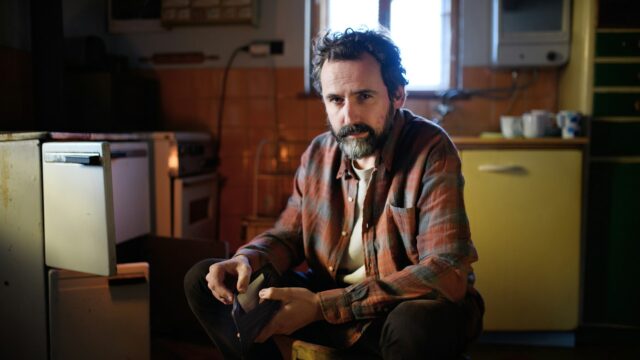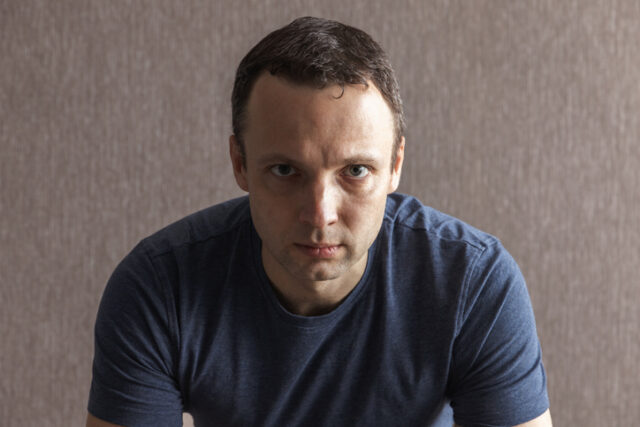They say we’re all our own harshest critics, and that’s certainly true for a lot of people.

You might not even realise you’re doing it, but sometimes the harshest words you’ll ever hear come from your own inner voice. What’s worse, the things it tells you aren’t just unkind, they’re often totally untrue. Here’s what it sounds like when you’re being too tough on yourself. When you notice this happening, it’s up to you to shift your self-talk to something more positive and affirming.
1. “I should be further along by now.”

This thought hits when you’re measuring yourself against some invisible timeline. You look at where you are and only see the gap between that and where you think you should be. Instead of appreciating the progress you’ve made, you focus on what you haven’t achieved yet, making your actual accomplishments feel meaningless. Remember, everyone’s path moves at its own pace; your journey isn’t behind—it’s just following its own course.
2. “Anyone could have done that.”

This usually sneaks in just after you’ve accomplished something meaningful, as if by reflex, you’re shrinking your success. Instead of letting yourself feel proud, you find ways to minimise it, assuming everyone else would find it just as easy. This habit dismisses your capabilities, making it hard for you to actually see your achievements for what they are.
3. “I need to be more productive.”

Even after a full day of checking things off, this thought pops up. You look at everything you did and somehow only see what’s left undone. The constant drive for more turns rest into guilt and makes “enough” feel like “not enough.” Your worth gets tangled with your output, as if you’re a machine that should always be running at full speed. But productivity isn’t a measure of your value.
4. “Why can’t I just get it together?”

This one comes out when you’ve hit a normal bump in the road but treat it like a personal failure. Small setbacks feel like proof of deeper flaws. You take regular human moments—forgetting something, making a mistake, feeling overwhelmed—and turn them into signs that something’s wrong with you. In reality, these are just normal struggles, not proof of being “broken.”
5. “I don’t deserve this.”

When something good happens, your mind starts looking for reasons to reject it. You question if you’ve really earned your successes, relationships, or opportunities. Even clear evidence of your worthiness can feel shaky. It’s like you’re searching for proof that you don’t belong in your own life.
6. “I’m not doing anything important.”

This thought discounts all the small ways you contribute. You might compare yourself to impossible standards, overlooking how you show up for other people every day. The ordinary moments of care and effort disappear when you’re focused on what “important” is supposed to look like. But those small things you do have an impact, even if they don’t always feel grand.
7. “I’ll probably mess this up.”

Before you even begin something new, you’re already anticipating failure. It’s a way to protect yourself, as if expecting the worst will soften the blow. You treat potential mistakes as inevitable, forgetting that learning and growth require imperfection. By approaching new opportunities with this thought, you’re holding yourself back before you even start.
8. “I should have done better.”

You say this when looking back at situations where you actually did your best with what you knew then. Instead of being kind to yourself about the past, you judge yourself with what you know now. You forget that doing your best looks different at different times, and that your past self deserves understanding, not criticism.
9. “Everyone else seems to have it figured out.”

This thought usually arises when you’re comparing your inner struggles to other people’s outer appearances. You imagine everyone else moving through life with ease, while you’re still figuring things out. Their highlight reels become your standard, and your own doubts feel like personal failures. But confusion is universal—it’s not just you.
10. “I can’t afford to rest yet.”

You tell yourself this even when you’re on the verge of burnout, treating rest as something you need to “earn.” Basic self-care turns into a reward you keep deferring, always waiting to feel “worthy” of taking care of yourself. You push through exhaustion like it’s a weakness instead of a sign to slow down. But rest isn’t a reward—it’s a necessity.
11. “What if I’m not cut out for this?”

This doubt appears when you’re stretching toward something important. Instead of seeing challenges as natural parts of growth, you treat them as evidence that you’re not enough. Every obstacle becomes proof that you don’t belong, instead of seeing them as steps along the way. You’re questioning your capability just as you’re proving it.
12. “I’m falling behind everyone else.”

This thought creeps in when you’re scrolling through social media or hearing about other people’s accomplishments. You start viewing life as a race, where everyone else seems to be miles ahead. Timelines turn into competitions, and your own pace feels inadequate. But life isn’t a race—it’s a personal journey, and your progress is yours alone.
13. “Why can’t I just be grateful?”

You criticise yourself for feeling anything other than positivity, adding guilt on top of whatever emotion you’re experiencing. Normal feelings become something to judge. You expect constant gratitude, turning even your emotions into things to “fix.” But the pressure to feel a certain way actually prevents you from processing how you really feel.




